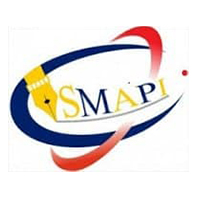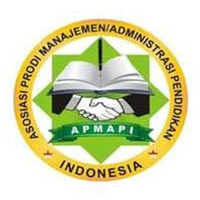- Focus and Scope
- Section Policies
- Peer Review Process
- Publication Frequency
- Open Access Policy
- Archiving
- Aims
- Indexing
- Fees
- Plagiarism Screening
Focus and Scope
The journal’s focus is on the studies of school management and leadership.
The scope:
• School planning.
• Program and project management in schools.
• School resources management. It includes management of educational personnel, curriculum, student affairs, school finance, infrastructure and educational facilities (libraries, laboratories, learning resources, etc.), technology and information.
• School leadership preparation and development.
• School leadership in a wide range of different contexts, e.g. school leadership in post-conflict or remote areas.
The journal enocurages manuscripts that address current issues within the scope above. Studies outside Indonesian contexts are welcome if they have implications for broad audience.
Section Policies
Articles
Peer Review Process
Determination of the article published in JuMP is carried out through double-blind peer-review by considering two main aspects: relevance and contribution of articles. Every article that goes to the editorial staff will be selected through Initial Review processes by Editorial Board. Then, the manuscript will be sent to at least two reviewers. The double-blind peer-review process is adopted to ensure that the manuscript selection is carried out objectively. Editors and reviewers would provide constructive feedback on the manuscript evaluation results to the author(s). The detailed review process is explained as the following:
1. Before submission, the author must finalize the registration processes.
2. Editor in chief will perform an initial review emphasized the following critical points:
- Suitability of the draft compared to the focus and scope of the journal
- Significance and novelty of the draft.
- Compliance with the author guidelines.
- Plagiarism checking by Turnitin.
- Decisions by the editor in chief during the initial review are as follows:
- Rejected after the peer-review process: The manuscript will be sent back to the author with comments attached to the manuscript.
- Revision required: The manuscript is sent back to the author with a comment attached. These comments will direct the author to revise a few things before reuploading the document via the OJS system.
- Accepted for the further peer-review process: The manuscript will be sent to the section editor to be assigned to the reviewers.
4. Next, the section editor will assign each manuscript to at least two reviewers. During the review processes, the manuscript will be reviewed using a double-blind peer-review process.
5. Reviewers will then provide comments with the following recommendations:
- Accepted
- Minor Revision
- Major Revision
- Rejected
6. The section editor and editor in chief will consider the recommendations and comments of reviewers before making the following decisions:
- Rejected: the manuscript will not proceed further for publication.
- Accepted: no revisions to the manuscript.
- Minor Revisions: the manuscript must be revised according to the comments from reviewers.
- Major Revisions: the manuscript must undergo major revisions according to the comments from reviewers.
7. After the section editor and editor-in-chief receive the manuscript, it will be sent to copyediting for drafting and editing before being sent back to the author for an overall review.
8. If changes required by authors with major and minor revisions are made prior to sending back to the system, the editor section will determine whether or not to proceed to the next revision process.
9. If the manuscript is rejected by the section editor and editor in chief, the author will be notified that the manuscript failed for publication. This decision is followed by the attached detailed comments.
10. After the layout is complete, the Letter of Agreement (LoA) will be sent to the author along with the final version of the manuscript.
Publication Frequency
Jurnal Manajemen Pendidikan (JuMP) is issued two times throughout the year, which is in April and October.
Open Access Policy
This journal provides immediate open access to its content on the principle that making research freely available to the public supports a greater global exchange of knowledge.
Archiving
This journal utilizes the LOCKSS system to create a distributed archiving system among participating libraries and permits those libraries to create permanent archives of the journal for purposes of preservation and restoration. More...
Aims
Jurnal Manajemen Pendidikan (JuMP) is an informative media which aims to place publications and share information in the field of educational management.
Indexing
Jurnal Manajemen Pendidikan (JuMP) is indexed by Sinta, Google Scholar, and Dimensions
Fees
This journal applies the following author fees:
Article Submission: Free of charge (IDR 0.00).
Article Publication: IDR 350,000.
Fast-Track Review: IDR 650,000 (optional, for expedited processing).
If your paper is accepted for publication, you will be required to pay the publication fee to cover associated costs.
Plagiarism Screening
Before going to review process, all manuscripts will be checked that they are free from plagiarism practice using "Turnitin" software. If there an indication of plagiarism, the manuscript will instantly be rejected.
Editorial board has passed the following actions:
- Similarity Index above 25 percent: Article Rejected (due to poor citation and/or poor paraphrasing, article outright rejected, no resubmission accepted).
- Similarity Index (15-25 percent): Send to the author for improvement (provide correct citations to all places of similarity and do good paraphrasing even if the citation is provided).
- Similarity index Less than 15 percent: Accepted or citation improvement may be required (proper citations must be provided to all outsourced texts).








